- Home
- H. P. Lovecraft
The Best of H.P. Lovecraft Page 7
The Best of H.P. Lovecraft Read online
Page 7
The cries were shocking; and as I stood in the brilliant apartment alone and dazed, listening to their vanishing echoes, I trembled at the thought of what might be lurking near me unseen. At a casual inspection the room seemed deserted, but when I moved toward one of the alcoves I thought I detected a presence there—a hint of motion beyond the golden-arched doorway leading to another and somewhat similar room. As I approached the arch I began to perceive the presence more clearly; and then, with the first and last sound I ever uttered—a ghastly ululation that revolted me almost as poignantly as its noxious cause—I beheld in full, frightful vividness the inconceivable, indescribable, and unmentionable monstrosity which had by its simple appearance changed a merry company to a herd of delirious fugitives.
I can not even hint what it was like, for it was a compound of all that is unclean, uncanny, unwelcome, abnormal, and detestable. It was the ghoulish shade of decay, antiquity, and desolation; the putrid, dripping eidolon of unwholesome revelation, the awful baring of that which the merciful earth should always hide. God knows it was not of this world—or no longer of this world—yet to my horror I saw in its eaten-away and bone-revealing outlines a leering, abhorrent travesty on the human shape; and in its moldy, disintegrating apparel an unspeakable quality that chilled me even more.
I was almost paralyzed, but not too much so to make a feeble effort toward flight; a backward stumble which failed to break the spell in which the nameless, voiceless monster held me. My eyes, bewitched by the glassy orbs which stared loathsomely into them, refused to close; though they were mercifully blurred, and showed the terrible object but indistinctly after the first shock. I tried to raise my hand to shut out the light, yet so stunned were my nerves that my arm could not fully obey my will. The attempt, however, was enough to disturb my balance; so that I had to stagger forward several steps to avoid falling. As I did so I became suddenly and agonizingly aware of the nearness of the carrion thing, whose hideous hollow breathing I half fancied I could hear. Nearly mad, I found myself yet able to throw out a hand to ward off the fetid apparition which pressed so close; when in one cataclysmic second of cosmic nightmarishness and hellish accident my fingers touched the rotting outstretched paw of the monster beneath the golden arch.
I did not shriek, but all the fiendish ghouls that ride the nightwind shrieked for me as in that same second there crashed down upon my mind a single and fleeting avalanche of soul-annihilating memory. I knew in that second all that had been; I remembered beyond the frightful castle and the trees, and recognized the altered edifice in which I now stood; I recognized, most terrible of all, the unholy abomination that stood leering before me as I withdrew my sullied fingers from its own.
But in the cosmos there is balm as well as bitterness, and that balm is nepenthe. In the supreme horror of that second I forgot what had horrified me, and the burst of black memory vanished in a chaos of echoing images. In a dream I fled from that haunted and accursed pile, and ran swiftly and silently in the moonlight. When I returned to the churchyard place of marble and went down the steps I found the stone trap-door immovable; but I was not sorry, for I had hated the antique castle and the trees. Now I ride with the mocking and friendly ghouls on the night wind, and play by day amongst the catacombs of Nephren-Ka in the sealed and unknown valley of Hadoth by the Nile. I know that light is not for me, save that of the moon over the rock tombs of Neb, nor any gayety save the unnamed feasts of Nitokris beneath the Great Pyramid; yet in my new wildness and freedom I almost welcome the bitterness of alienage.
For although nepenthe has calmed me, I know always that I am an outsider; a stranger in this century and among those who are still men. This I have known ever since I stretched out my fingers to the abomination within the great gilded frame; stretched out my fingers and touched a cold and unyielding surface of polished glass.
Pickman’s Model
You needn’t think I’m crazy, Eliot—plenty of others have queerer prejudices than this. Why don’t you laugh at Oliver’s grandfather, who won’t ride in a motor? If I don’t like that damned subway, it’s my own business; and we got here more quickly anyhow in the taxi. We’d have had to walk up the hill from Park Street if we’d taken the car.
I know I’m more nervous than I was when you saw me last year, but you don’t need to hold a clinic over it. There’s plenty of reason, God knows, and I fancy I’m lucky to be sane at all. Why the third degree? You didn’t use to be so inquisitive.
Well, if you must hear it, I don’t know why you shouldn’t. Maybe you ought to know, anyhow, for you kept writing me like a grieved parent when you heard I’d begun to cut the Art Club and keep away from Pickman. Now that he’s disappeared I go around to the club once in a while, but my nerves aren’t what they were.
No, I don’t know what’s become of Pickman, and I don’t like to guess. You might have surmised I had some inside information when I dropped him—and that’s why I don’t want to think where he’s gone. Let the police find what they can—it won’t be much, judging from the fact that they don’t know yet of the old North End place he hired under the name of Peters. I’m not sure that I could find it again myself—not that I’d ever try, even in broad daylight! Yes, I do know, or am afraid I know, why he maintained it. I’m coming to that. And I think you’ll understand before I’m through why I don’t tell the police. They would ask me to guide them, but I couldn’t go back there even if I knew the way. There was something there—and now I can’t use the subway or (and you may as well have your laugh at this, too) go down into cellars any more.
I should think you’d have known I didn’t drop Pickman for the same silly reasons that fussy old women like Dr. Reid or Joe Minot or Rosworth did. Morbid art doesn’t shock me, and when a man has the genius Pickman had I feel it an honour to know him, no matter what direction his work takes. Boston never had a greater painter than Richard Upton Pickman. I said it at first and I say it still, and I never swerved an inch, either, when he showed that “Ghoul Feeding.” That, you remember, was when Minot cut him.
You know, it takes profound art and profound insight into Nature to turn out stuff like Pickman’s. Any magazine-cover hack can splash paint around wildly and call it a nightmare or a Witches’ Sabbath or a portrait of the devil, but only a great painter can make such a thing really scare or ring true. That’s because only a real artist knows the actual anatomy of the terrible or the physiology of fear—the exact sort of lines and proportions that connect up with latent instincts or hereditary memories of fright, and the proper colour contrasts and lighting effects to stir the dormant sense of strangeness. I don’t have to tell you why a Fuseli really brings a shiver while a cheap ghost-story frontispiece merely makes us laugh. There’s something those fellows catch—beyond life—that they’re able to make us catch for a second. Doré had it. Sime has it. Angarola of Chicago has it. And Pickman had it as no man ever had it before or—I hope to Heaven—ever will again.
Don’t ask me what it is they see. You know, in ordinary art, there’s all the difference in the world between the vital, breathing things drawn from Nature or models and the artificial truck that commercial small fry reel off in a bare studio by rule. Well, I should say that the really weird artist has a kind of vision which makes models, or summons up what amounts to actual scenes from the spectral world he lives in. Anyhow, he manages to turn out results that differ from the pretender’s mince-pie dreams in just about the same way that the life painter’s results differ from the concoctions of a correspondence-school cartoonist. If I had ever seen what Pickman saw—but no! Here, let’s have a drink before we get any deeper. Gad, I wouldn’t be alive if I’d ever seen what that man—if he was a man—saw!
You recall that Pickman’s forte was faces. I don’t believe anybody since Goya could put so much of sheer hell into a set of features or a twist of expression. And before Goya you have to go back to the mediaeval chaps who did the gargoyles and chimaeras on Notre Dame and Mont Saint-Michel. They believed all sorts of thin
gs—and maybe they saw all sorts of things, too, for the Middle Ages had some curious phases. I remember your asking Pickman yourself once, the year before you went away, wherever in thunder he got such ideas and visions. Wasn’t that a nasty laugh he gave you? It was partly because of that laugh that Reid dropped him. Reid, you know, had just taken up comparative pathology, and was full of pompous “inside stuff” about the biological or evolutionary significance of this or that mental or physical symptom. He said Pickman repelled him more and more every day, and almost frightened him toward the last—that the fellow’s features and expression were slowly developing in a way he didn’t like; in a way that wasn’t human. He had a lot of talk about diet, and said Pickman must be abnormal and eccentric to the last degree. I suppose you told Reid, if you and he had any correspondence over it, that he’d let Pickman’s paintings get on his nerves or harrow up his imagination. I know I told him that myself—then.
But keep in mind that I didn’t drop Pickman for anything like this. On the contrary, my admiration for him kept growing; for that “Ghoul Feeding” was a tremendous achievement. As you know, the club wouldn’t exhibit it, and the Museum of Fine Arts wouldn’t accept it as a gift; and I can add that nobody would buy it, so Pickman had it right in his house till he went. Now his father has it in Salem—you know Pickman comes of old Salem stock, and had a witch ancestor hanged in 1692.
I got into the habit of calling on Pickman quite often, especially after I began making notes for a monograph on weird art. Probably it was his work which put the idea into my head, any anyhow, I found him a mine of data and suggestions when I came to develop it. He showed me all the paintings and drawings he had about; including some pen-and-ink sketches that would, I verily believe, have got him kicked out of the club if many of the members had seen them. Before long I was pretty nearly a devotee, and would listen for hours like a schoolboy to art theories and philosophic speculations wild enough to qualify him for the Danvers asylum. My hero-worship, coupled with the fact that people generally were commencing to have less and less to do with him, made him get very confidential with me; and one evening he hinted that if I were fairly close-mouthed and none too squeamish, he might show me something rather unusual—something a bit stronger than anything he had in the house.
“You know,” he said, “there are things that won’t do for Newbury Street—things that are out of place here, and that can’t be conceived here, anyhow. It’s my business to catch the overtones of the soul, and you won’t find those in a parvenu set of artificial streets on made land. Back Bay isn’t Boston—it isn’t anything yet, because it’s had no time to pick up memories and attract local spirits. If there are any ghosts here, they’re the tame ghosts of a salt marsh and a shallow cove; and I want human ghosts—the ghosts of beings highly organised enough to have looked on hell and known the meaning of what they saw.
“The place for an artist to live is the North End. If any aesthete were sincere, he’d put up with the slums for the sake of the massed traditions. God, man! Don’t you realise that places like that weren’t merely made, but actually grew? Generation after generation lived and felt and died there, and in days when people weren’t afraid to live and feel and die. Don’t you know there was a mill on Copp’s Hill in 1632, and that half the present streets were laid out by 1650? I can show you houses that have stood two centuries and a half and more; houses that have witnessed what would make a modern house crumble into powder. What do moderns know of life and the forces behind it? You call the Salem witchcraft a delusion, but I’ll wager my four-times-great-grandmother could have told you things. They hanged her on Gallows Hill, with Cotton Mather looking sanctimoniously on. Mather, damn him, was afraid somebody might succeed in kicking free of this accursed cage of monotony—I wish someone had laid a spell on him or sucked his blood in the night!
“I can show you a house he lived in, and I can show you another one he was afraid to enter in spite of all his fine bold talk. He knew things he didn’t dare put into that stupid Magnalia or that puerile Wonders of the Invisible World. Look here, do you know the whole North End once had a set of tunnels that kept certain people in touch with each other’s houses, and the burying ground, and the sea? Let them prosecute and persecute above ground—things went on every day that they couldn’t reach, and voices laughed at night that they couldn’t place!
“Why, man, out of ten surviving houses built before 1700 and not moved since I’ll wager that in eight I can show you something queer in the cellar. There’s hardly a month that you don’t read of workmen finding bricked-up arches and wells leading nowhere in this or that old place as it comes down—you could see one near Henchman Street from the elevated last year. There were witches and what their spells summoned; pirates and what they brought in from the sea; smugglers; privateers—and I tell you, people knew how to live, and how to enlarge the bounds of life, in the old time! This wasn’t the only world a bold and wise man could know—faugh! And to think of today in contrast, with such pale-pink brains that even a club of supposed artists gets shudders and convulsions if a picture goes beyond the feelings of a Beacon Street teatable!
“The only saving grace of the present is that it’s too damned stupid to question the past very closely. What do maps and records and guidebooks really tell of the North End? Bah! At a guess I’ll guarantee to lead you to thirty or forty alleys and networks of alleys north of Prince Street that aren’t suspected by ten living beings outside of the foreigners that swarm them. And what do those Dagoes know of their meaning? No, Thurber, these ancient places are dreaming gorgeously and overflowing with wonder and terror and escapes from the commonplace, and yet there’s not a living soul to understand or profit by them. Or rather, there’s only one living soul—for I haven’t been digging around in the past for nothing!
“See here, you’re interested in this sort of thing. What if I told you that I’ve got another studio up there, where I can catch the night-spirit of antique horror and paint things that I couldn’t even think of in Newbury Street? Naturally I don’t tell those cursed old maids at the club—with Reid, damn him, whispering even as it is that I’m a sort of monster bound down the toboggan of reverse evolution. Yes, Thurber, I decided long ago that one must paint terror as well as beauty from life, so I did some exploring in places where I had reason to know terror lives.
“I’ve got a place that I don’t believe three living Nordic men besides myself have ever seen. It isn’t so very far from the elevated as distance goes, but it’s centuries away as the soul goes. I took it because of the queer old brick well in the cellar—one of the sort I told you about. The shack’s almost tumbling down, so that nobody else would live there, and I’d hate to tell you how little I pay for it. The windows are boarded up, but I like that all the better, since I don’t want daylight for what I do. I paint in the cellar, where the inspiration is thickest, but I’ve other rooms furnished on the ground floor. A Sicilian owns it, and I’ve hired it under the name of Peters.
“Now if you’re game, I’ll take you there tonight. I think you’d enjoy the pictures, for as I said, I’ve let myself go a bit there. It’s no vast tour—I sometimes do it on foot, for I don’t want to attract attention with a taxi in such a place. We can take the shuttle at the South Station for Battery Street, and after that the walk isn’t much.”
Well, Eliot, there wasn’t much for me to do after that harangue but to keep myself from running instead of walking for the first vacant cab we could sight. We changed to the elevated at the South Station, and at about twelve o’clock had climbed down the steps at Battery Street and struck along the old waterfront past Constitution Wharf. I didn’t keep track of the cross streets, and can’t tell you yet which it was we turned up, but I know it wasn’t Greenough Lane.
When we did turn, it was to climb through the deserted length of the oldest and dirtiest alley I ever saw in my life, with crumbling-looking gables, broken small-paned windows, and archaic chimneys that stood out half-disintegrated against
the moonlit sky. I don’t believe there were three houses in sight that hadn’t been standing in Cotton Mather’s time—certainly I glimpsed at least two with an overhang, and once I thought I saw a peaked roof-line of the almost forgotten pre-gambrel type, though antiquarians tell us there are none left in Boston.
From that alley, which had a dim light, we turned to the left into an equally silent and still narrower alley with no light at all: and in a minute made what I think was an obtuse-angled bend toward the right in the dark. Not long after this Pickman produced a flashlight and revealed an antediluvian ten-panelled door that looked damnably worm-eaten. Unlocking it, he ushered me into a barren hallway with what was once splendid dark-oak panelling—simple, of course, but thrillingly suggestive of the times of Andros and Phipps and the Witchcraft. Then he took me through a door on the left, lighted an oil lamp, and told me to make myself at home.
Now, Eliot, I’m what the man in the street would call fairly “hardboiled,” but I’ll confess that what I saw on the walls of that room gave me a bad turn. They were his pictures, you know—the ones he couldn’t paint or even show in Newbury Street—and he was right when he said he had “let himself go.” Here—have another drink—I need one anyhow!
There’s no use in my trying to tell you what they were like, because the awful, the blasphemous horror, and the unbelievable loathsomeness and moral foetor came from simple touches quite beyond the power of words to classify. There was none of the exotic technique you see in Sidney Sime, none of the trans-Saturnian landscapes and lunar fungi that Clark Ashton Smith uses to freeze the blood. The backgrounds were mostly old churchyards, deep woods, cliffs by the sea, brick tunnels, ancient panelled rooms, or simple vaults of masonry. Copp’s Hill Burying Ground, which could not be many blocks away from this very house, was a favourite scene.

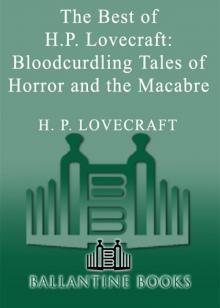 The Best of H.P. Lovecraft
The Best of H.P. Lovecraft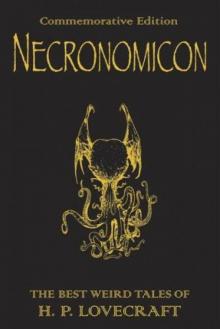 The Definitive H.P. Lovecraft: 67 Tales Of Horror In One Volume
The Definitive H.P. Lovecraft: 67 Tales Of Horror In One Volume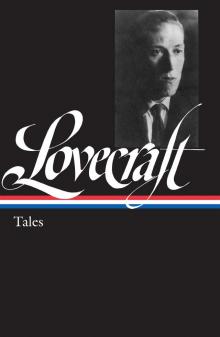 The Complete Works of H.P. Lovecraft
The Complete Works of H.P. Lovecraft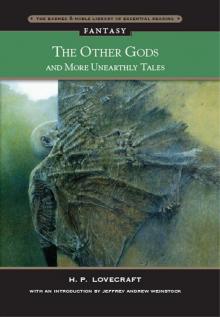 Other Gods and More Unearthly Tales
Other Gods and More Unearthly Tales Lovecraft's Fiction Volume I, 1905-1925
Lovecraft's Fiction Volume I, 1905-1925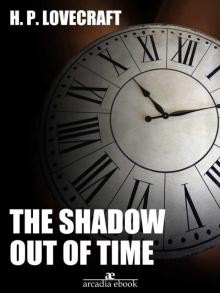 The Shadow Out of Time
The Shadow Out of Time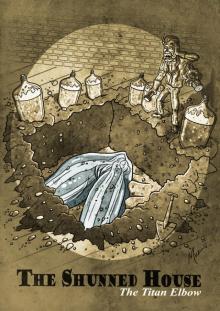 The Shunned House
The Shunned House Lovecraft's Fiction Volume II, 1926-1928
Lovecraft's Fiction Volume II, 1926-1928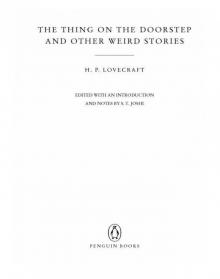 The Thing on the Doorstep and Other Weird Stories
The Thing on the Doorstep and Other Weird Stories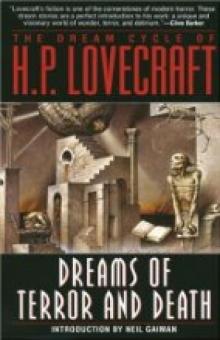 Dream Cycle of H. P. Lovecraft: Dreams of Terror and Death
Dream Cycle of H. P. Lovecraft: Dreams of Terror and Death Great Tales of Horror
Great Tales of Horror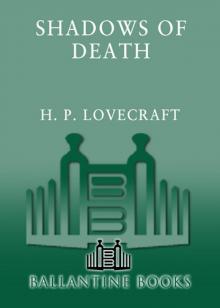 Shadows of Death
Shadows of Death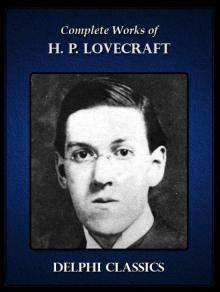 Delphi Complete Works of H. P. Lovecraft (Illustrated)
Delphi Complete Works of H. P. Lovecraft (Illustrated)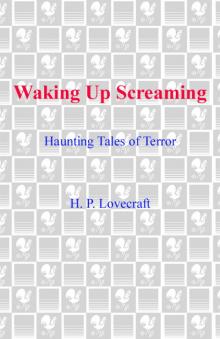 Waking Up Screaming: Haunting Tales of Terror
Waking Up Screaming: Haunting Tales of Terror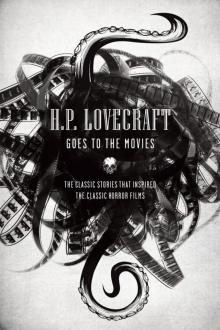 H.P. Lovecraft Goes to the Movies
H.P. Lovecraft Goes to the Movies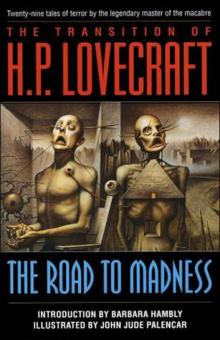 The Road to Madness
The Road to Madness The Complete H.P. Lovecraft Reader (68 Stories)
The Complete H.P. Lovecraft Reader (68 Stories)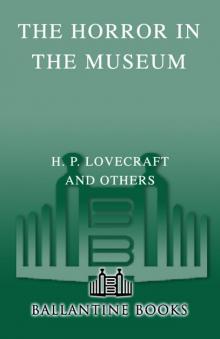 The Horror in the Museum
The Horror in the Museum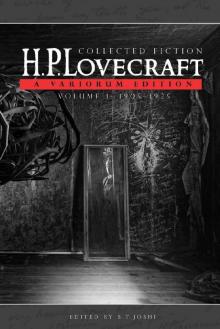 Collected Fiction Volume 1 (1905-1925): A Variorum Edition
Collected Fiction Volume 1 (1905-1925): A Variorum Edition Lovecrafts_Fiction, vol.I_1905-1925
Lovecrafts_Fiction, vol.I_1905-1925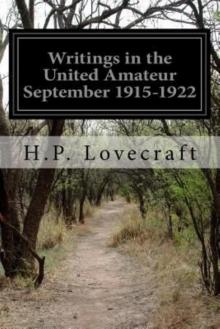 Writings in the United Amateur, 1915-1922
Writings in the United Amateur, 1915-1922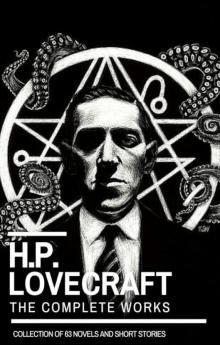 H.P. Lovecraft: The Complete Works
H.P. Lovecraft: The Complete Works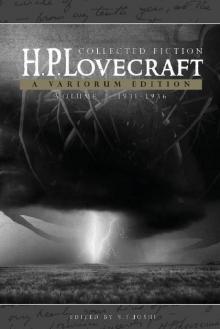 Collected Fiction Volume 3 (1931-1936): A Variorum Edition
Collected Fiction Volume 3 (1931-1936): A Variorum Edition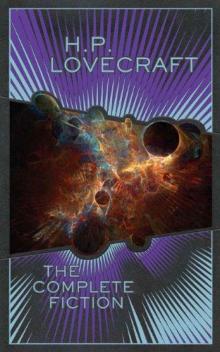 H.P. Lovecraft: The Complete Fiction
H.P. Lovecraft: The Complete Fiction Collected Fiction Volume 2 (1926-1930): A Variorum Edition
Collected Fiction Volume 2 (1926-1930): A Variorum Edition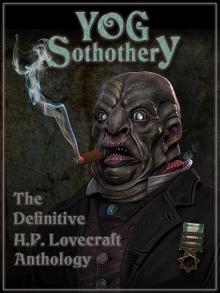 Yog Sothothery - The Definitive H.P. Lovecraft Anthology
Yog Sothothery - The Definitive H.P. Lovecraft Anthology The Complete H.P. Lovecraft Collection (Xist Classics)
The Complete H.P. Lovecraft Collection (Xist Classics)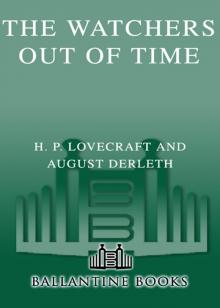 The Watchers Out of Time
The Watchers Out of Time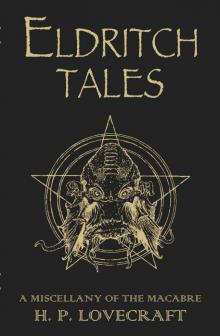 Eldritch Tales
Eldritch Tales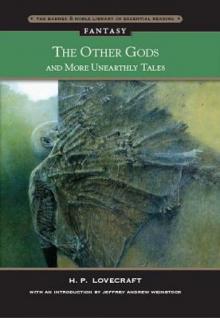 The Other Gods And More Unearthly Tales
The Other Gods And More Unearthly Tales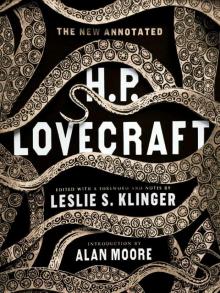 The New Annotated H. P. Lovecraft
The New Annotated H. P. Lovecraft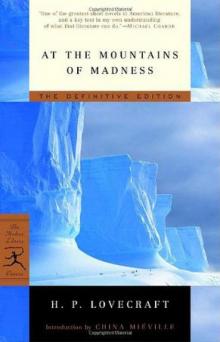 At the mountains of madness
At the mountains of madness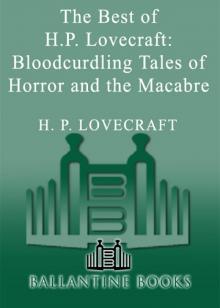 Bloodcurdling Tales of Horror and the Macabre
Bloodcurdling Tales of Horror and the Macabre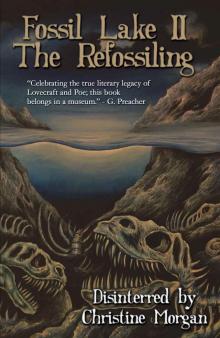 Fossil Lake II: The Refossiling
Fossil Lake II: The Refossiling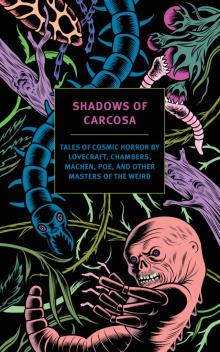 Shadows of Carcosa: Tales of Cosmic Horror by Lovecraft, Chambers, Machen, Poe, and Other Masters of the Weird
Shadows of Carcosa: Tales of Cosmic Horror by Lovecraft, Chambers, Machen, Poe, and Other Masters of the Weird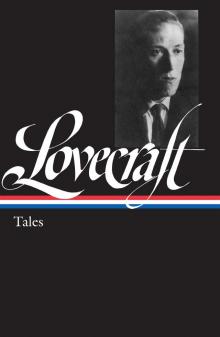 H. P. Lovecraft
H. P. Lovecraft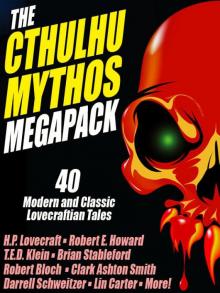 The Cthulhu Mythos Megapack
The Cthulhu Mythos Megapack The Complete H. P. Lovecraft Reader (2nd Edition)
The Complete H. P. Lovecraft Reader (2nd Edition)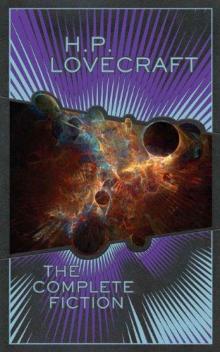 The Complete Fiction
The Complete Fiction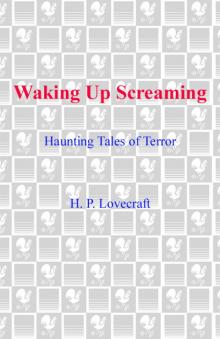 Waking Up Screaming
Waking Up Screaming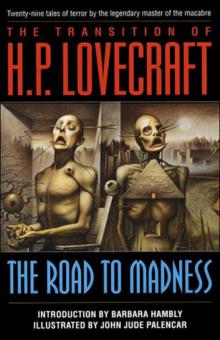 Transition of H. P. Lovecraft
Transition of H. P. Lovecraft![[1935] The Shadow Out of Time Read online](http://i1.bookreadfree.com/i2/04/12/1935_the_shadow_out_of_time_preview.jpg) [1935] The Shadow Out of Time
[1935] The Shadow Out of Time The Horror Megapack
The Horror Megapack